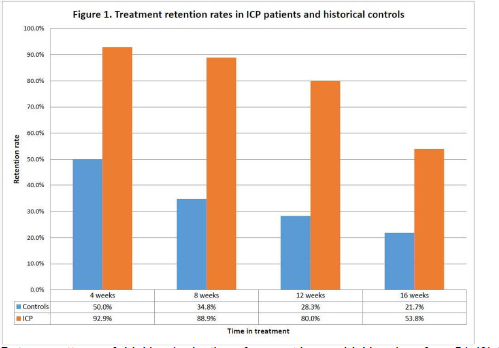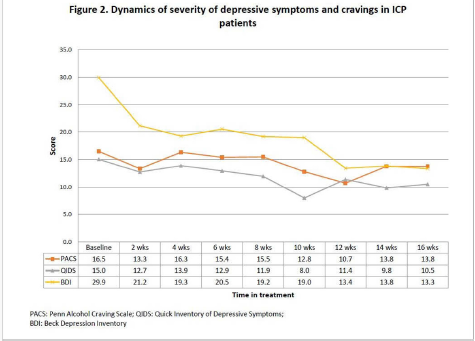Article contents
Early Outcomes of the Integrated Care Pathway for Concurrent Major Depressive Disorder and Alcohol Dependence
Published online by Cambridge University Press: 15 April 2020
Abstract
Both Major Depressive Disorder (MDD) and Alcohol Dependence (AD) are highly prevalent, comorbid and have significant impact on morbidity, mortality and socioeconomic burden. Several studies have suggested that these concurrent conditions lead to suboptimal treatment outcomes. Combined psycho- and pharmacotherapies for both conditions promise better outcomes than treatment as usual. We developed and implemented an Integrated Care Pathway (ICP) specifically for concurrent MDD and AD.
The aim of the study is to assess the clinical effectiveness of the ICP approach.
1. To compare treatment completion rates between the ICP and historical controls
2. To describe the changes in patterns of drinking and severity of depressive symptoms in ICP patients.
Review of clinical charts of ICP patients (n=28) and historical controls (n=92).
The ICP patients had significantly higher treatment completion rates compared to historical controls (53.8% vs 21.7%; Fig. 1)

Data on patterns of drinking (reduction of percent heavy drinking days from 51.4% to 34.5%), and severity of cravings and depressive symptoms (Fig. 2) were not sufficient for proper statistical testing due to small sample size and multiple missing data points, but showed a tendency for improvement.

ICP patients showed a tendency for improvement and significantly greater treatment completion rates than historical controls. Larger sample size and further data collection are needed to corroborate these findings.
- Type
- Article: 1088
- Information
- European Psychiatry , Volume 30 , Issue S1: Abstracts of the 23rd European Congress of Psychiatry , March 2015 , pp. 1
- Copyright
- Copyright © European Psychiatric Association 2015
- 5
- Cited by





Comments
No Comments have been published for this article.